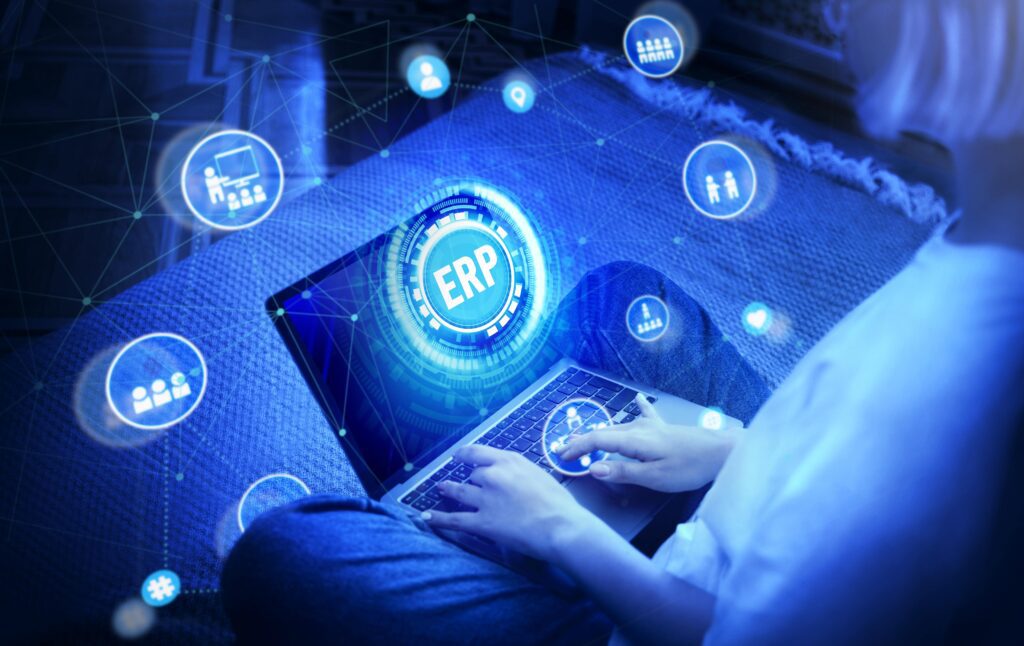ERP systems are imperative to the success of a business. They aid in better management of the core business operations and expanding without increasing the costs. Nowadays, the ERP system is utilized as a business management system that acts as a driving force for any small, medium, or large-scale enterprise. They extensively depend on an Enterprise Resource Planning system to keep the business running smoothly.
However, businesses often remain skeptical about whether or not they should upgrade their ERP system to the latest version.
To help you better determine whether you must go for an upgraded version, we have pointed out the key signs you must look for before making the big decision. Also, we will walk you through the top 5 reasons to upgrade the ERP system and the risks involved with keeping a system that doesn’t fully meet your current business needs.
Let’s roll.
Key signs to look for before going for an ERP system upgrade
An obsolete ERP system can be a significant problem for your business as you always look forward to improving your business. But how to find out if your ERP system is outdated? To help you better gauge when to upgrade your ERP software, check out some of the critical signs to look for before going for an ERP system upgrade.
Bad integration across the enterprise
Do your business systems interact and share data across multiple programs and platforms, or do they remain in isolation? Outdated ERP systems make businesses do more manual work, as they are not often integration-friendly. An ERP system designed for integration across the entire enterprise help in the effective management of people, processes, and data without importing and exporting data via CSV files.
Lack of data security
Are you completely aware of who has access to your enterprise data? Different responsibilities need the different extent of access to business data, but the enterprise is left unguarded with a lack of control over users’ access to data. By installing an Enterprise Resource System, you can have complete control often to record level detail on access to critical business data.
Lack of cloud functionality
An older version will store all your data and programs locally. Lack of cloud functionality can cause inconvenience at times when you experience hardware issues or are work-occupied.
Unavailability of Key Performance Indicator
KPI’s are essential for measuring the successes and failures of your enterprise. It enables business owners to get an overview of how their business is performing at a given time. Without an ERP system, any data that reaches the company executives becomes obsolete or inconsistent when it gets to their respective desks.
Installing an ERP system gives you access to real-time data and functionalities that encourage you to take the pulse of your business’s performance through your critical KPIs.
Redundant data entry
A centralized ERP system prevents you from entering incorrect data in two to three different approaches. An organization that doesn’t have an ERP system often deals with outdated and inconsistent records that take resources to balance and sort out for duplication.ERP systems help businesses to maintain a single source of record for their enterprise data, reducing uselessness and saving time in data entry.
Prone to failure with a minor change
Time spent sorting out significant internal drawbacks leads to financial loss and efficiency. An enterprise shouldn’t lose out on the cost-saving opportunity when considering purchasing and implementing an ERP solution.
An ERP solution offers a stable codebase for your day-to-day activities.
5 reasons to upgrade Enterprise Resource Planning (ERP) system
In today’s highly competitive business environment, where technology is evolving at a much faster pace, you must keep up with the latest versions.
Upgrading your ERP software will improve software functionality and offer the best tech option in the market.
To understand the merits better, we have listed down five benefits of upgrading your ERP system –
Enhanced quality and productivity
Each software upgrade comes with new features that add value to your business. These new technical and functional features aids in completing daily business processes with enhanced quality and productivity. Upgrading the ERP system leads to improved quality and productivity at work, so it’s possibly the most important reason to upgrade your ERP system.
Smooth implementations
Upgrading ERP systems periodically will enable users to adapt to the new software version smoothly. If you have been working on an outdated version for years, it will be more challenging to convince and train your employees on the newest version. You must ensure that your organization faces no disruption while upgrading to the latest version at the right time. Additionally, you must also remember that your employees go through an accurate training process to yield maximum benefit.
Outsmart security threats
The outdated versions are prone to attacks by any intruder. The attacks that occur through the operating systems can lead to massive damage within the ERP area. An upgraded ERP system offers intelligent automation and prioritization of the critical elements of the application’s lifecycle. A modern ERP foundation enables your business to control access, manage users, monitor business transactions, configuration changes, and so on.
Modern systems reduce cost
Companies that are still relying on an outdated version are paying more for their maintenance than a modern system. Such companies are working on a less efficient system, making them less competent than modern firms.
In addition, if you skip the various versions before upgrading, you will need to bear a substantial; amount of expenditure. While you initiate an ERP business collaboration with your vendor, you can learn about the availability of upgrade subscription schemes. This will help you in decreasing the entire ownership expenditure in context to the best cloud ERP system.

